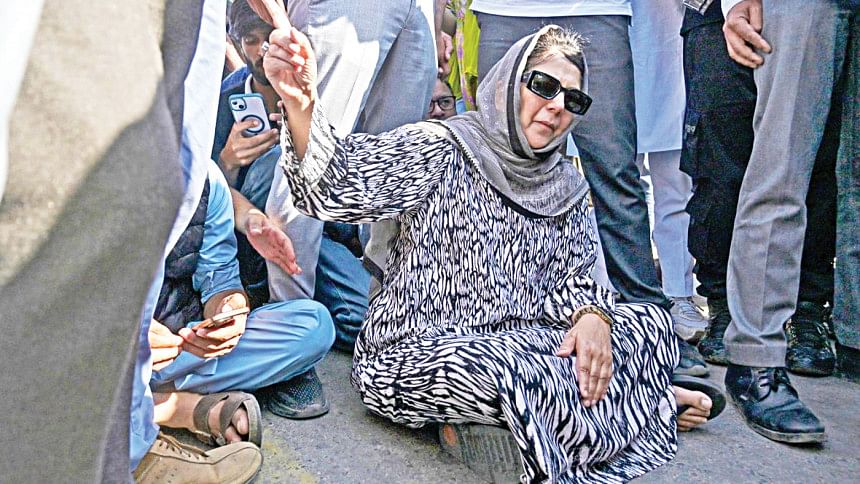Vote against dictatorship
Two top rivals of Indian Prime Minister Narendra Modi who accuse his government of targeting them in unjustified criminal probes cast their votes in New Delhi yesterday as the country’s six-week election resumed.
Hindu nationalist Modi, 73, remains broadly popular after a decade in office and his ruling Bharatiya Janata Party (BJP) is widely expected to win a third term next month after a poll hit by high summer temperatures.
But accusations that the BJP has sought to sideline its opponents via the justice system have sparked concerns from UN rights chief Volker Turk and rights groups over the election’s fairness.

Rahul Gandhi, the most prominent leader of India’s opposition Congress party, cast his ballot at a polling station in New Delhi, where temperatures were forecast to reach 43 degrees Celsius (109 degrees Fahrenheit).
A son, grandson and great-grandson of former prime ministers, Gandhi paused after voting to take a selfie with his mother Sonia but did not speak to crowds of reporters.
The scion of a dynasty that dominated Indian politics for decades, he was convicted of criminal libel last year after a complaint by a member of Modi’s party. His two-year prison sentence saw him disqualified from parliament until the verdict was suspended by a higher court.
After voting, Delhi Chief Minister Arvind Kejriwal, 55, leader of the opposition Aam Aadmi Party (AAP), urged citizens: “Please vote, use your right to vote, and vote against dictatorship.”
Kejriwal was arrested in March in a long-running graft case and detained for several weeks before the Supreme Court granted him bail earlier this month and he returned to the campaign trail.
Investigators “had no proof and yet they jailed him”, opposition voter Yogesh Kumar, 42, told AFP. “This is a blunt show of power.”
Congress is spearheading an opposition alliance of more than two dozen parties competing jointly against Modi, including the AAP.
Kejriwal’s organisation grew out of an anti-corruption movement a decade ago — its name means Common Man’s party — and has been elected to office in the Delhi region and the state of Punjab, but has struggled to establish itself as a nationwide force.
In February, authorities froze several Congress bank accounts as part of a running dispute over income tax returns filed five years ago, a move Gandhi said had severely impacted the party’s ability to contest the election.
Modi’s political opponents and international rights campaigners have long sounded the alarm on India’s shrinking democratic space.
LondonGBDESK//



Comments are closed.